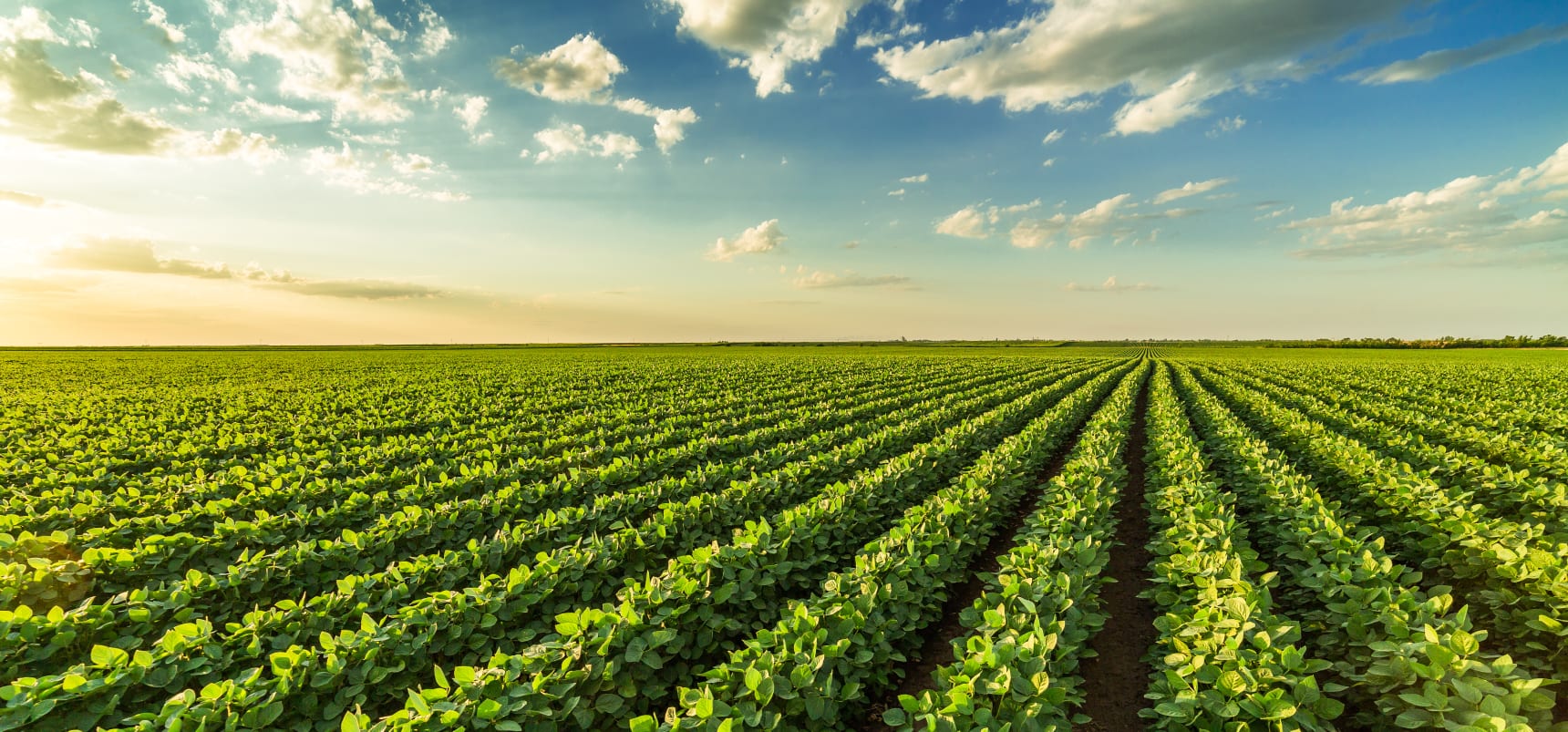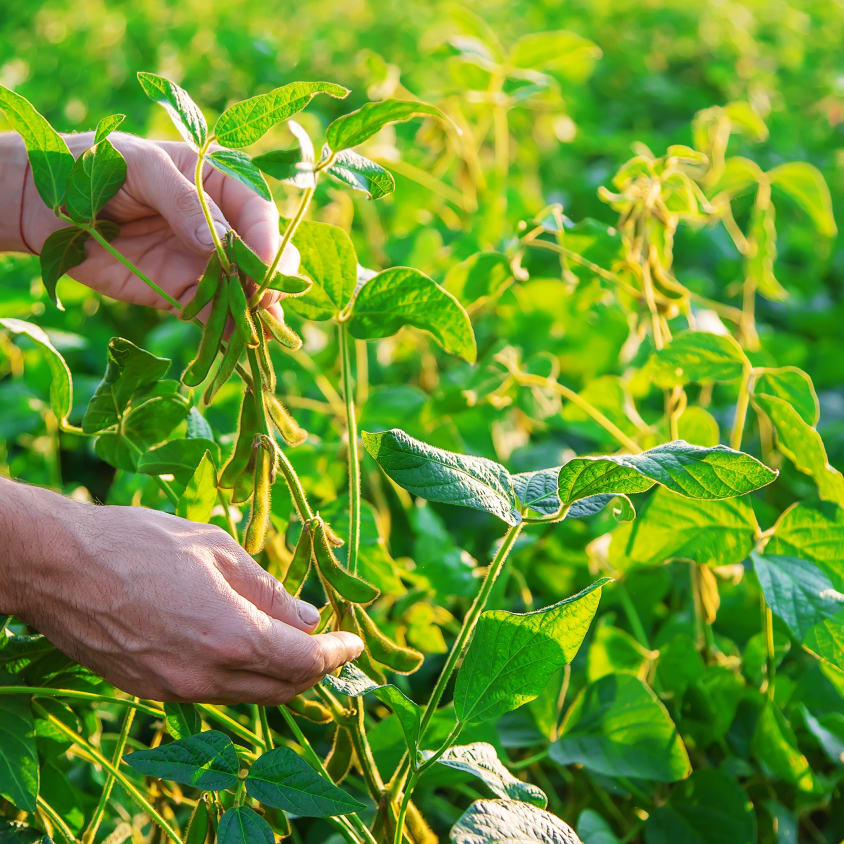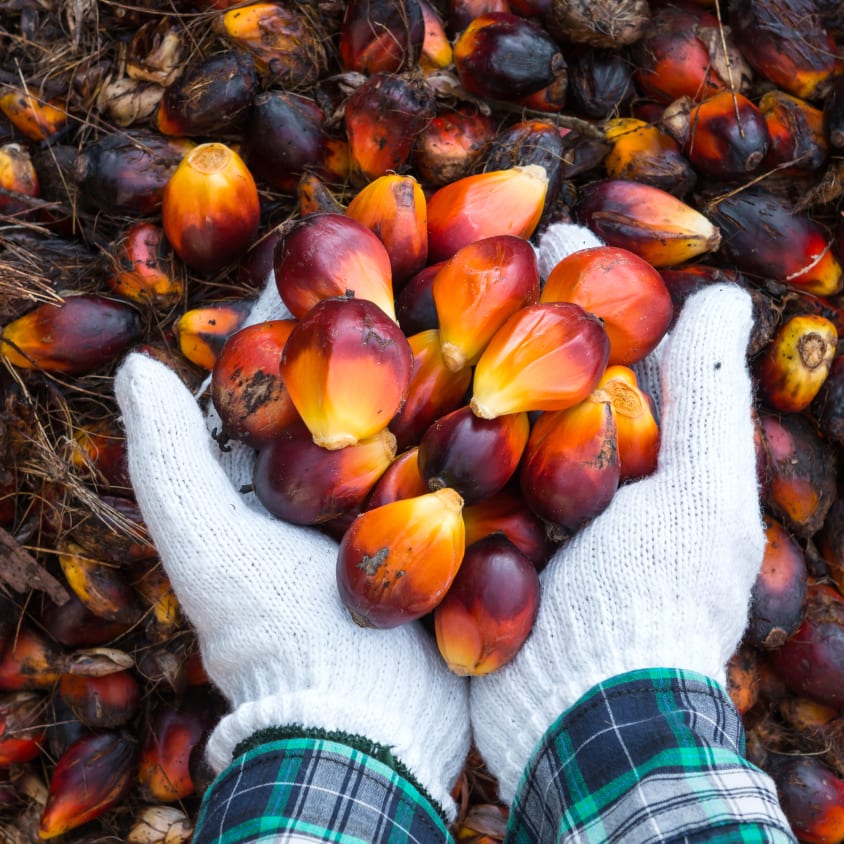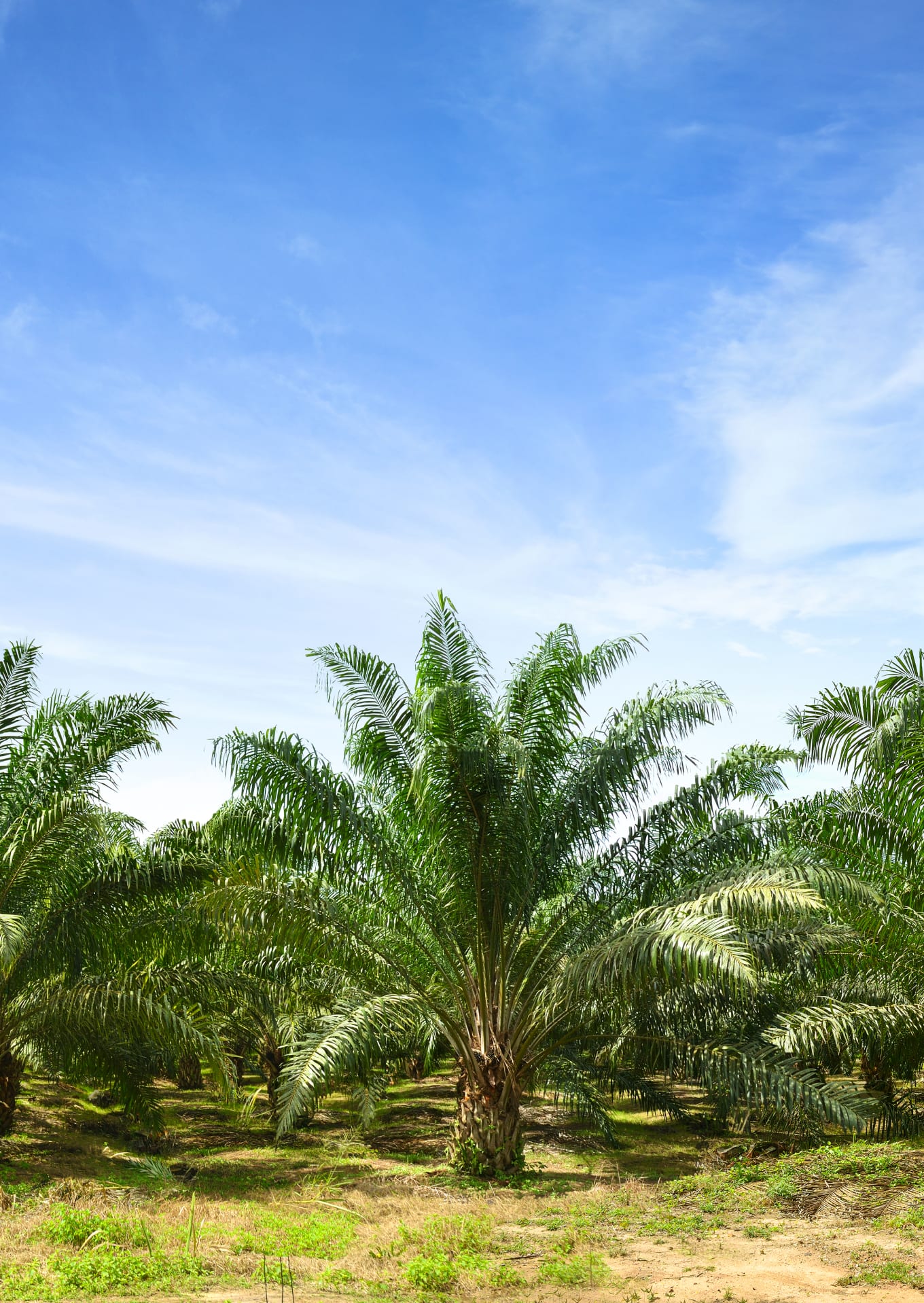
Every choice. Every action plan. Every responsible partnership
About soy
Soy is an important source of protein and is used in many of our products – both indirectly in meat and dairy products through animal feed but also directly as an ingredient. A significant part of the Danish-imported soy is grown in South America, where the production is associated with several negative consequences for both the climate and local communities. Conventional soy cultivation often contributes to the deforestation of significant areas, which releases large amounts of CO2 and threatens the habitats of countless animal species that are an important part of South American ecosystems. At the same time, the rights of the indigenous people are violated as deforestation destroys their land and forces them away.
As Denmark's largest retailing group with a large selection of both meat and dairy products, we want to take responsibility and increase the share of more responsibly produced soy in our supply chains.


Alliance for Responsible Soy
In 2020, Salling Group became a founding member of the Danish Alliance for Responsible Soy.
The Alliance is a united campaigner against deforestation with a vision to ensure that all soy imported to Denmark is produced responsibly, including legally, and does not contribute to deforestation or conversion of other natural vegetation. The Alliance brings together important players across industries for dialogue and knowledge sharing of methods. By doing this, we can jointly drive the transition to more responsible soy.
As a member of the Alliance, we have committed to an action plan that will help us achieve our overall goal. As a follow-up to this action plan, we report on an annual basis to the Alliance's secretariat, after which a joint status report of the alliance's overall progress is published.
Our targets
100% of our own products with ≥40% animal protein or ≥5% soy content certified by an acceptable third-party certification by 2025.
About palm oil
Palm oil is found as an ingredient in many of our products, primarily in food products and in personal care products. Palm oil comes from the fruits of the palm and is pressed out of the pulp and the kernel of the palm fruit. One of the main reasons for the popularity of this vegetable oil is its performance.
The palm is simply one of the most efficient oil crops available, which means that it has a high yield per hectare compared to other sources of vegetable oils. The palm is most commonly grown in countries such as Malaysia and Indonesia and is unfortunately also associated with deforestation and other potentially critical social conditions for both the workers involved and the surrounding communities.
Deforestation is high on the agenda both at an international and national level. It is therefore also an important task for Salling Group to contribute positively in relation to minimising the negative consequences of palm cultivation.


Alliance for Responsible Palm Oil
Salling Group has been a member of the Danish Alliance for Responsible Palm Oil since 2021.
In the Alliance, we discuss the problems associated with the cultivation of palm oil and potential solutions. Together with the other members and supporting members who represent manufacturers, NGOs, trade unions, think tanks, ministries and other retailers, we get to illuminate the challenges from several different angles, which contributes positively to constructive initiatives.
We commit to action via the publication of an action plan that describes actions to ensure progress – in addition, we report on an annual basis to the Alliance's secretariat.
Our targets
100% of our Private Label products that contain palm oil must be Roundtable on Sustainable Palm Oil-Certified (RSPO) at the minimum level of Mass Balance and Segregated by 2025.
Alongside registering products containing palm oil and collecting RSPO certificates, we are working to achieve more transparency and traceability in our supply chains. We strive to ascertain the plantations from which the palm oil originates.